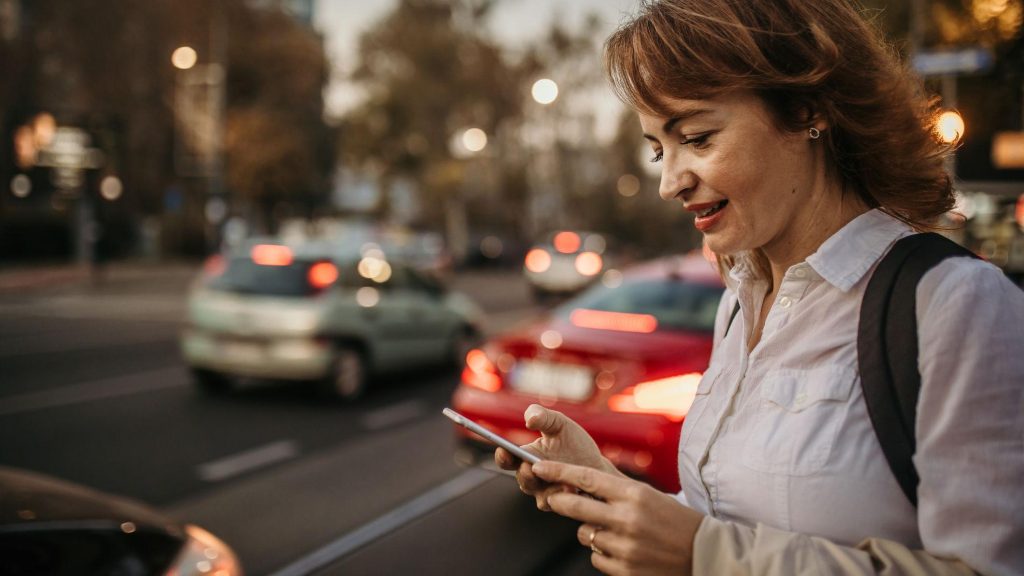
Dara Khosrowshahi, the CEO of Uber, has advised customers to exercise a bit more patience when waiting for electric vehicles (EVs) as the company enhances its offerings to encourage greener rides. In a recent interview with the BBC, Khosrowshahi stated, “A couple of minutes isn’t going to kill anyone,” emphasizing the importance of making environmentally conscious choices.
Uber is actively rolling out initiatives to promote electric rides among its users, yet Khosrowshahi believes that governments need to play a larger role in facilitating the transition to electric vehicles. He noted the benefits of affordable, high-quality electric cars made in China, which he sees as a critical part of addressing climate change. However, many countries are hesitant to welcome Chinese EVs, viewing them as a threat to domestic manufacturers.
Khosrowshahi expressed hope that the new UK government would adhere to its commitment to phase out the sale of petrol and diesel vehicles by 2030, a timeline pushed back from the previous deadline of 2035 by the former administration.
Embracing Electric
Uber’s initiative to encourage riders to select electric vehicles aligns with its broader sustainability goals, aiming for all car journeys and deliveries to be conducted in “zero emissions vehicles” by 2040. While the company is making strides in this direction, Khosrowshahi acknowledged that expanding beyond traditional ride-hailing and food delivery could complicate achieving these goals.
Currently, Uber users can select an electric vehicle when booking a ride, and a new feature will soon allow them to set a permanent preference for EVs. However, the majority of Uber’s fleet remains comprised of petrol, diesel, or hybrid vehicles, meaning that passengers may have to wait slightly longer for an electric option.
Khosrowshahi stated, “We’re not saying, hey, wait 15 minutes, but if you have to wait another two or three minutes to help the environment, why not make that investment?” In London, nearly a third of Uber drivers have already transitioned to EVs, suggesting that the wait times for electric rides could soon improve. However, adoption rates are lower in other regions of the UK and globally, with cities like Amsterdam and Paris seeing only about 20% of Uber miles driven in fully electric vehicles.
Business and Environmental Benefits
While Khosrowshahi believes that transitioning to electric will ultimately benefit Uber’s business, he noted that the company currently enjoys a lower profit margin on electric rides compared to traditional ones. Additionally, Uber is diversifying its service offerings, including delivery options for household goods and groceries. “You can get pet food from your local shop with an Uber courier within the next hour or two,” he said, adding, “Ultimately, we think that can be even better than Amazon.”
However, critics point out that ride-hailing services have contributed to an increase in car journeys, potentially replacing public transportation options and leading to more traffic congestion.
Tariffs and EV Adoption
Khosrowshahi acknowledged the complexities surrounding government policies on tariffs for electric vehicles but insisted that Chinese-made cars should be part of the solution to expanding electric vehicle access. He stated, “For us, we want to electrify our fleet and ensure it is affordable for our drivers.” Price remains a significant barrier to widespread electric vehicle adoption, alongside concerns regarding charging infrastructure.
The Uber CEO believes that government support for the transition to electric vehicles should focus on high-mileage drivers, like Uber operators, and corporate fleets rather than individual consumers. “The Uber driver drives four to five times the miles of average drivers,” he explained.
Automakers are advocating for a more balanced approach to subsidies that would benefit both businesses and individual buyers to stimulate broader demand for electric vehicles. Meanwhile, the U.S. and the European Union have accused China of unfairly subsidizing its carmakers and have imposed tariffs to align prices more closely with domestic manufacturers.
Khosrowshahi expressed that using tariffs to increase the cost of Chinese vehicles for American and European consumers is detrimental to environmental efforts. He argued that without these tariffs, Chinese-made cars could be offered at lower prices, making them more accessible to consumers.
Additionally, Uber has formed a partnership with BYD, China’s second-largest electric vehicle manufacturer after Tesla, to bolster its electric offerings. As the company navigates the transition to electric, the focus remains on providing more options for customers while promoting sustainability in its operations.








